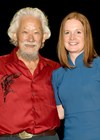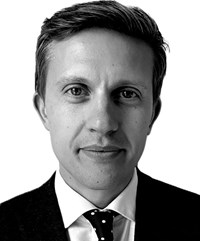ENT features archive for 2023
Circular economy approach to reducing your carbon footprint in your ENT operating room
Although our operating rooms consume significant resources, some simple changes can have considerable impact in reducing greenhouse gas emissions. Here are 10 such simple things we can do. Waste is one of the largest contributors to a hospital’s carbon footprint,...
A sound change: transitioning hearing healthcare to net-zero
Grassroot initiatives are often the most effective. When individuals come together and work with industry, changes are possible in reducing carbon emissions. This article summarises such an initiative working with companies to address Environmental, Social, and Governance (ESG) and Corporate...
Managing sustainability
Planetary health needs to be addressed at a societal level for any meaningful impact to occur. As the global director of sustainability for a law firm, Marion Palmer provides an overview of the responsibilities of corporate organisations for both a...
Making healthcare conferences green
Who knew our healthcare conference industry contributed so much to global carbon emissions? This article summarises means to reduce the impact such that we can continue to meet with our peers for educational meetings and networking, but in a sustainable...
3D printing and sustainability in audiology and ENT
As we try to avoid disposing of equipment that is still functional, we are challenged by company policies that make equipment ‘obsolete’ and no longer supported for repairs. One innovative solution is provided by 3D printing parts that are needed...
Facing changes after surgery through portraiture
‘Facing Out: Life After Treatment for Facial Cancer’ was a two-year arts-for-health project funded by Arts Council England and The National Lottery which culminated in an exhibition at The Whitworth Art Gallery, Manchester, in February 2019. Here, artist and project...
Medical racism and the surgical ‘correction’ of the nose in Brazil
Anthropologist Professor Carmen Alvaro Jarrín has conducted extensive research into plastic surgery practice in Brazil. Here, she explains why social and cultural ideas about race may shape rhinoplasty objectives for patients and surgeons in the country. Health professionals worldwide are...
A look at Black representation in ENT
The importance of diversity in ENT has recently been highlighted by ENT UK’s Equity, Diversity and Inclusion Strategy and Action Plan. In this article, Oloruntobi Rotimi discusses the importance of Black role models for those starting out in the specialty....
From patient to performer
Peter Cawrey lives in Harpenden, Hertfordshire, with his wife Dorothy. He had a salvage laryngectomy for squamous cell carcinoma in 2015, three years following his initial radiotherapy. Due to complications and a complex recovery, he has elected not to have...
Gender-affirming voice surgery
Professor Ahmed Geneid is a laryngologist and phoniatrician at Helsinki University Hospital and a founding member of the International Association of TransVoice Surgeons. Here, he presents the intricacies and nuances of gender-affirming voice surgery after own hospital’s 30 years of...
Being a doctor abroad – comparing the Greek healthcare system with the NHS
Healthcare systems and training programmes vary significantly across the world. By learning about other healthcare systems, we can identify blind spots in our own system and continue to improve training. Sofia Anastasiadou, an ENT Registrar in South West England, describes...
Hunting for the zorse - hybrid learning in the wake of the COVID-19 pandemic
Emma Watts, a West Midlands ENT Registrar and Digital Fellow, gives a witty and concise recollection of ENT training during COVID, and predicts how hybrid learning may be here to stay. *A zorse is the offspring of a zebra stallion...




















